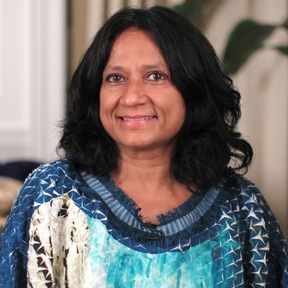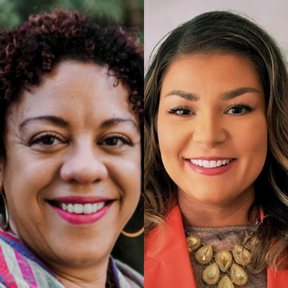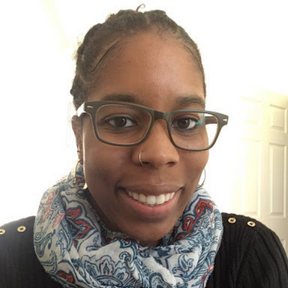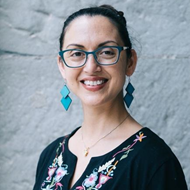 Imagine this: It’s grant deadline day. You get on the grant portal to submit your materials. Proposal, check. Project budget, check.
Imagine this: It’s grant deadline day. You get on the grant portal to submit your materials. Proposal, check. Project budget, check.
You scroll down the list of required attachments. Wait a second, what’s this? Staff and board demographics… you must’ve forgotten, darn it.
So in a rush, you scroll through the current staff and board rosters and hastily assign demographics to them “to the best of your knowledge” according to the survey categories. Save and submit. Phew!

 The Tuesday after Thanksgiving has become a charity free-for-all, with pleading subject lines vying for attention as they flood mailboxes. Nonprofit organizations have seized onto Giving Tuesday as an opportunity to reap a kind of fiscal penance after the indulgences of Black Friday and Cyber Monday.
The Tuesday after Thanksgiving has become a charity free-for-all, with pleading subject lines vying for attention as they flood mailboxes. Nonprofit organizations have seized onto Giving Tuesday as an opportunity to reap a kind of fiscal penance after the indulgences of Black Friday and Cyber Monday. 
 A group of BIPOC fundraisers and nonprofit professionals began a collaboration to build a movement for racial and economic justice, sharing dreams of a world beyond capitalism and the nonprofit industrial complex. To gauge perceptions of nonprofit fundraising, this group distributed a survey in May 2019. Intended to highlight the thoughts and experiences of fundraisers and presented through a series of infographics, here are some findings from over 2,000 fundraisers and nonprofit professionals surveyed.
A group of BIPOC fundraisers and nonprofit professionals began a collaboration to build a movement for racial and economic justice, sharing dreams of a world beyond capitalism and the nonprofit industrial complex. To gauge perceptions of nonprofit fundraising, this group distributed a survey in May 2019. Intended to highlight the thoughts and experiences of fundraisers and presented through a series of infographics, here are some findings from over 2,000 fundraisers and nonprofit professionals surveyed.

 One of the biggest lessons I’ve learned in my first decade of parenthood is that I have so much more to learn from my children than they will ever learn from me. They are curious, kind, and optimistic. They feel their feelings in a big way and have not succumbed to shame and self-doubt. They are excellent at speaking their truth and voicing their own needs. They could probably use some work on their boundaries (who needs privacy in the shower, anyway?), but, if there’s any force that can teach us to be the best, most unapologetic versions of ourselves, it is our children.
One of the biggest lessons I’ve learned in my first decade of parenthood is that I have so much more to learn from my children than they will ever learn from me. They are curious, kind, and optimistic. They feel their feelings in a big way and have not succumbed to shame and self-doubt. They are excellent at speaking their truth and voicing their own needs. They could probably use some work on their boundaries (who needs privacy in the shower, anyway?), but, if there’s any force that can teach us to be the best, most unapologetic versions of ourselves, it is our children. I spend a lot of time engaging with the world virtually these days — especially on TikTok. In addition to viral dances and meme-ified sounds, my TikTok “For You Page” offers videos of creators dancing, making art, sharing their pains and joys, telling jokes, and engaging in political education and discussion. Although I’ve felt particularly isolated during this last year and a half, TikTok has helped me find community and confirm that I’m not the only one frustrated by capitalism.
I spend a lot of time engaging with the world virtually these days — especially on TikTok. In addition to viral dances and meme-ified sounds, my TikTok “For You Page” offers videos of creators dancing, making art, sharing their pains and joys, telling jokes, and engaging in political education and discussion. Although I’ve felt particularly isolated during this last year and a half, TikTok has helped me find community and confirm that I’m not the only one frustrated by capitalism.  I think we’re all a bit prone to thinking that accessibility is tied to technology — like a website’s coding, the structure of a PDF, metadata, whatever — and so we think that accessibility is an ‘expert’s domain,’ like we kinda assume it’s the web developer or graphic designer’s job. But actually, accessibility comes in really varied forms, including how we write. And this is cool because just about everyone writes and reads, which means everyone can play a part in creating more accessible content.
I think we’re all a bit prone to thinking that accessibility is tied to technology — like a website’s coding, the structure of a PDF, metadata, whatever — and so we think that accessibility is an ‘expert’s domain,’ like we kinda assume it’s the web developer or graphic designer’s job. But actually, accessibility comes in really varied forms, including how we write. And this is cool because just about everyone writes and reads, which means everyone can play a part in creating more accessible content.  We, as a world, take pride in our data collection abilities and the evolving technologies at our disposal. However, when we look closely, we often realize that especially in our nonprofit sector, the data we have is flawed.
We, as a world, take pride in our data collection abilities and the evolving technologies at our disposal. However, when we look closely, we often realize that especially in our nonprofit sector, the data we have is flawed.  Are you a member of a racial justice team at a white-led organization?
Are you a member of a racial justice team at a white-led organization?